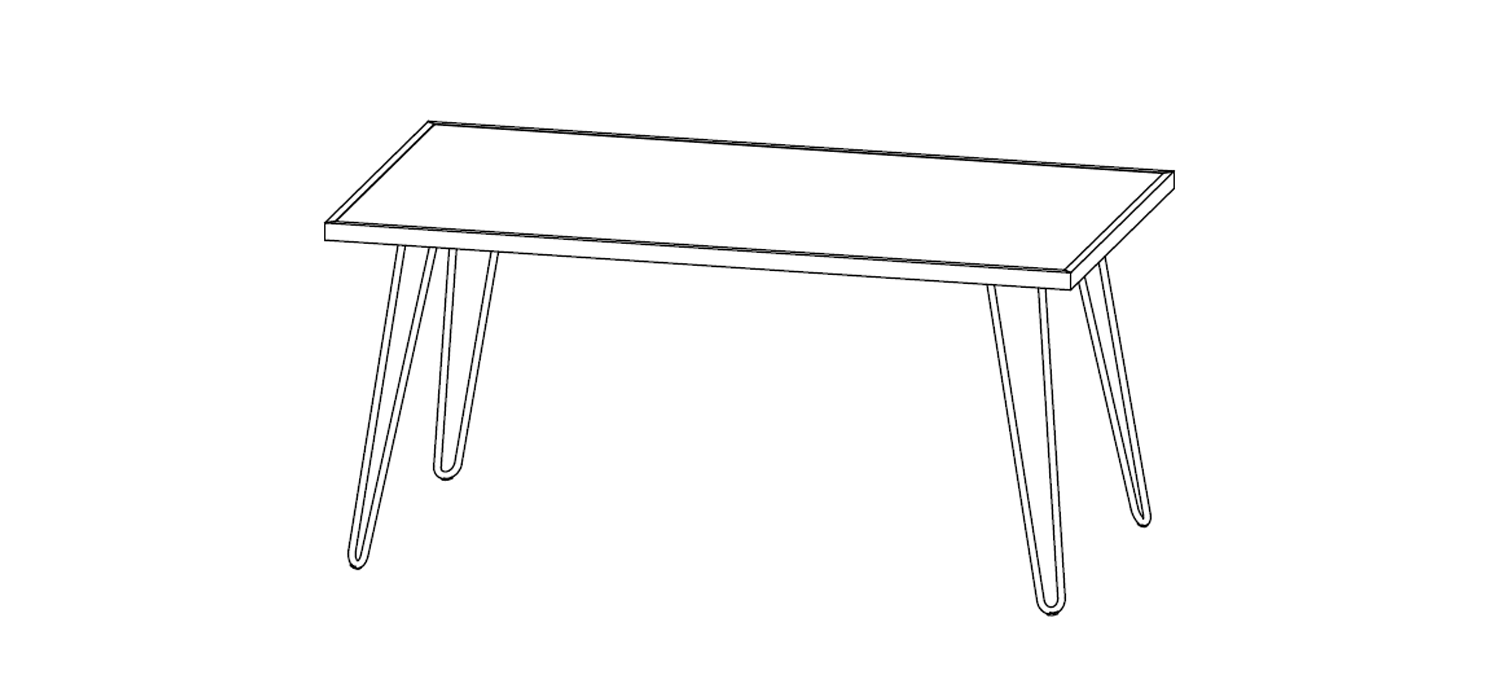JOHN LEWISHairpin Dining Table SmallUser Guide
H75 W120 D85
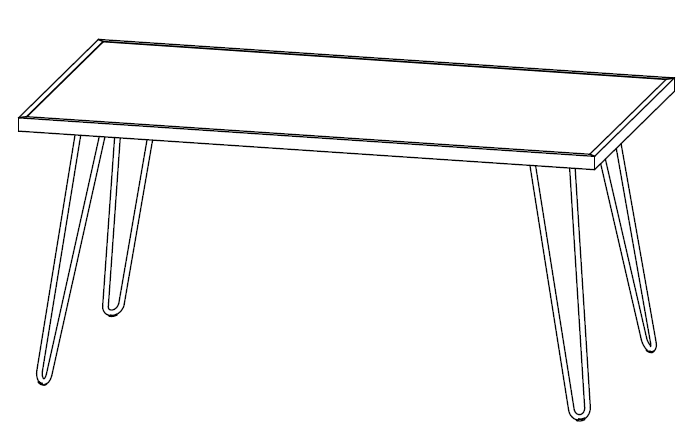
Thank you for purchasing the Hairpin Dining Table. Please read the instructions and warnings carefully before use, to ensure safe and satisfactory operation of this product. At John Lewis, we are committed to making great products possible.From our in-house Design Team, to our Buyers, we work together to bring great designs to life. Our expert Product Technologists work collaboratively with our buyers and suppliers to assure the legality, safety and quality of the product we sell.We are all committed to designing and developing products to the highest industry standards.
We hope you are happy with your product and welcome any feedback or comments you may have.
The John Lewis Team
Tools required
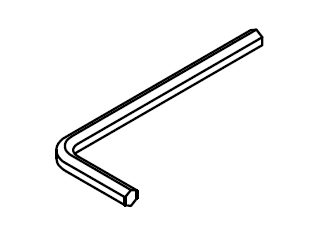
Time to assemble : 1 hour
People to assemble :
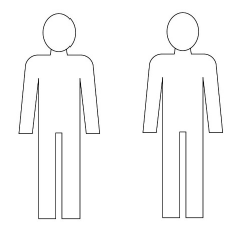
Important safety information
Warnings!
- The product should only be used on firm, level ground.
- Keep small parts out of reach of children.
- Ensure the product is full), assembled as illustrated before use.
Do’s
✓. Check the pack and make sure you have all the parts listed.✓. Check all screws or bolts are tightened and inspect regularly.✓. Make sure the legs remain in contact with the ground at all times.
Don’ts
X. Do not over tighten screws or bolts.X. Do not stand on the product.X. Do not use power tools to construct as overtightening and panel failure may occur.

Your Dining Table
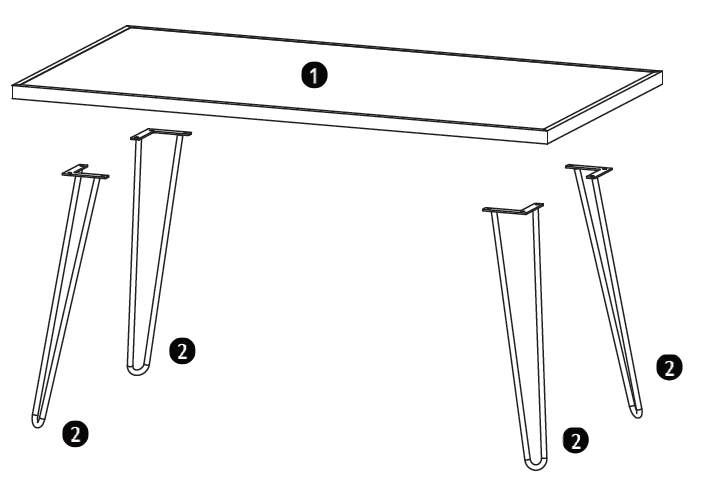

Fixtures and fittings
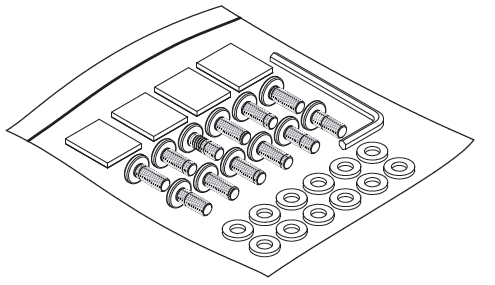
Fixtures and fittings
supplied (actual size)
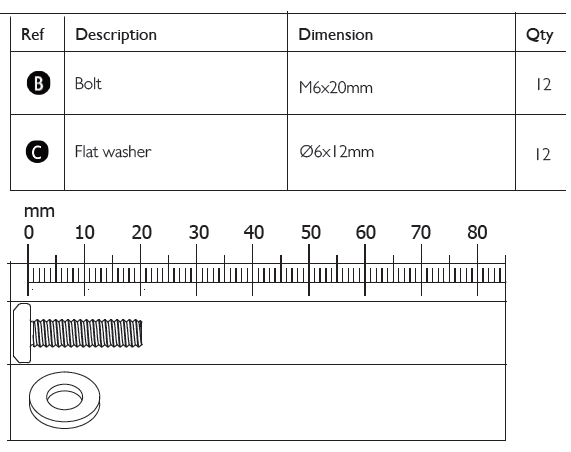
Fixtures and fittings supplied (not actual size)

Product Assembly
Hairpin Dining Table
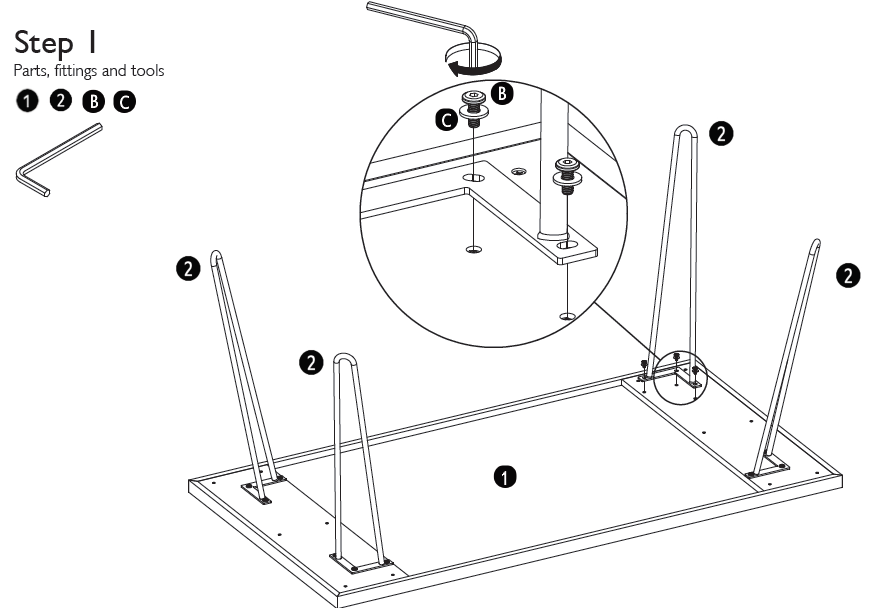
Do not completely tighten until all bolts are inserted and legs are in the correct angles.
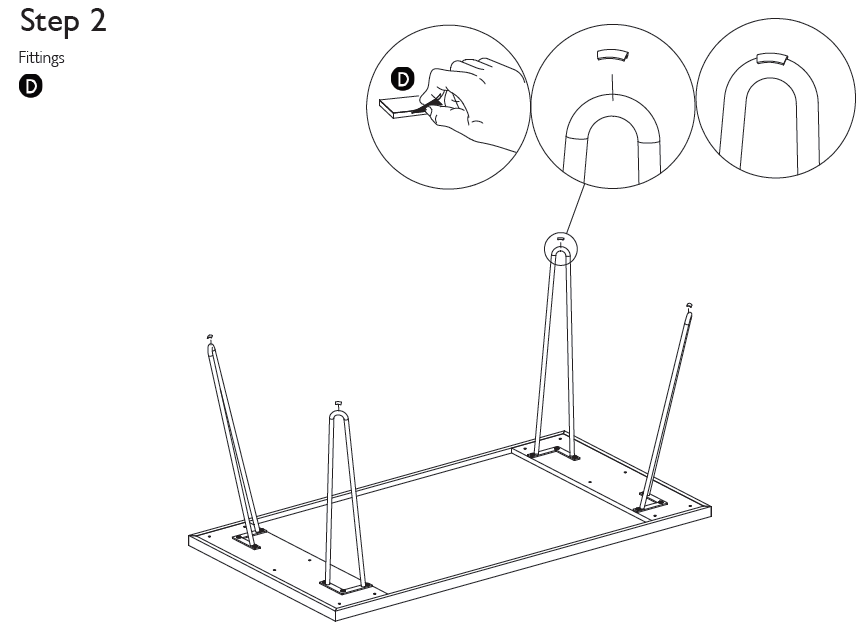
Care and maintenance
Wood Furniture
Wood displays different grain patterns depending on which way they cut – for example, the ‘medullary ray’ which can appear on oak furniture is a mark of good quality timber – these are just characteristics of the natural beauty of the wood. Some furniture is also deliberately aged and rustic.
Wood veneers also allow distinctive patterns to be created on flat surfaces, such as table tops and drawer fronts by the way the slivers are arranged. All timber surfaces will change colour and mellow over time. New furniture will initially vary in shade from items that have been previously purchased.
How to care for your wood furniture
Furniture with a hard lacquer should be dusted with a dry cloth. Spray polishes are best avoided as they contain silicones which may spoil the furniture’s surface by building up over time.
Make sure all surfaces are protected from heat and liquids by mats and coasters. Wipe up spills immediately and ensure that a mat or pad is placed under paper if you are writing.
Our furniture will endure most temperatures in the home but it is best to avoid placing furniture next to heat sources such as radiators or fires. Be particularly careful with solid wood as the lack of humidity caused by central heating can cause damage such as warping
Safety instructions
Never drag furniture when moving it, always lift it.Periodically check all fixings to ensure none have come loose and re-tighten where necessary. Please take care when handling or moving the furniture as careless handling may cause damage or injury. Furniture can be dangerous if incorrectly installed. Assembly should be carried out by a competent person. No liability will be accepted for damage or injury caused by incorrectly installed or assembled furniture.
Retain these instructions for future reference.
John Lewis Partnership171 Victoria StreetLondon SW1E 5NNjohnlewis.com
References
[xyz-ips snippet=”download-snippet”]

